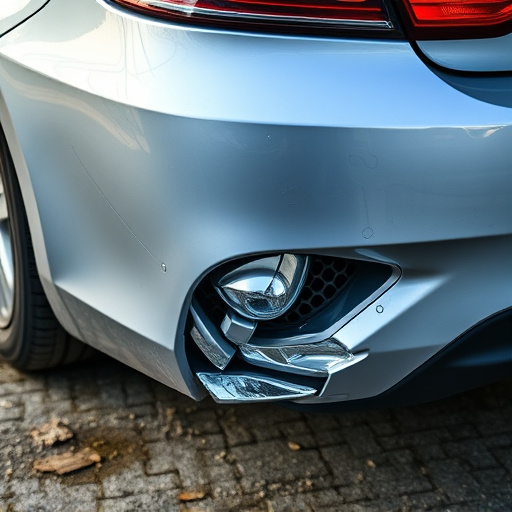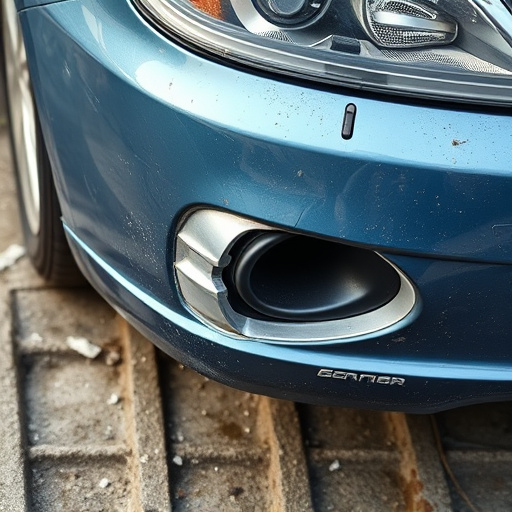Mercedes radar recalibration is a vital process for maintaining the accuracy and reliability of the vehicle's adaptive cruise control (ACC) system, which uses radar sensors to monitor distance and adjust speed. Over time, sensor misalignment or external factors like rain, snow, or debris can decrease ACC performance. Regular recalibration aligns front and rear sensor signals, minimizing errors, enhancing driver safety, and preventing potential issues, ensuring optimal ACC tracking and swift reaction to changing road conditions.
Mercedes radar recalibration is a crucial process that ensures the accuracy of their adaptive cruise control (ACC) systems. This advanced technology relies on precise sensor data to maintain safe distances and adjust speeds accordingly. Over time, factors like environmental changes or component wear can impact performance. Understanding the Mercedes radar recalibration process and its benefits is essential for vehicle owners to keep their ACC functioning optimally. By addressing common issues early, drivers can experience enhanced safety and a smoother driving experience.
- Understanding Mercedes Radar Recalibration Process
- Benefits of Accurate Adaptive Cruise Control
- Common Issues and When Recalibration is Necessary
Understanding Mercedes Radar Recalibration Process

The Mercedes radar recalibration process is a sophisticated procedure designed to ensure the precision and reliability of the vehicle’s adaptive cruise control (ACC) system. This technology uses radar sensors to monitor the distance between your car and the vehicle ahead, automatically adjusting speed to maintain a safe gap. Over time, these sensors can become slightly misaligned or contaminated by external factors, affecting their accuracy.
During the recalibration process, technicians carefully adjust and calibrate the radar system using specialized tools. This involves ensuring the signals from the front and rear sensors are properly aligned and synchronized. The goal is to minimize errors caused by environmental conditions like rain, snow, or debris, which can interfere with signal quality. Regular Mercedes radar recalibration is crucial for maintaining optimal ACC performance, enhancing driver safety, and preventing potential issues that could arise from less-than-perfect sensor calibration, similar to how car dent repair addresses aesthetic and structural damage in the automotive body work realm.
Benefits of Accurate Adaptive Cruise Control

The benefits of accurate Adaptive Cruise Control (ACC) are manifold, particularly for modern vehicles like Mercedes cars equipped with advanced driver-assistance systems (ADAS). ACC enhances safety by automating speed adjustments to maintain a safe distance from the vehicle ahead, reducing the risk of collisions and driver fatigue during long journeys. This feature is invaluable in traffic jams or on highway cruises, where maintaining consistent speeds can be challenging.
Moreover, precise Mercedes radar recalibration ensures that the ACC system functions optimally over time, especially after repairs or upgrades involving bumper repair and classic car restoration. By calibrating the radar sensors, mechanics can fine-tune the ACC’s performance, ensuring it accurately tracks other vehicles and responds swiftly to changing road conditions. This precision not only improves safety but also enhances the overall driving experience, making every journey smoother and more relaxed.
Common Issues and When Recalibration is Necessary

Over time, various factors can impact the accuracy of a Mercedes’ Adaptive Cruise Control (ACC) system, leading to less-than-optimal performance. Common issues include sensor debris, environmental changes, and component wear, all of which may cause the radar to detect vehicles or obstacles incorrectly. When these inaccuracies occur, it’s often a sign that a Mercedes radar recalibration is necessary.
Recalibration ensures the ACC system receives accurate signals from the radar sensors, allowing for precise tracking of surrounding vehicles. This process involves adjusting and calibrating the radar system to account for any discrepancies, effectively restoring optimal performance. Similar to car dent removal techniques in paintless dent repair or addressing cosmetic issues in car restoration, Mercedes radar recalibration aims to bring the vehicle’s safety systems back to their original precision.
Mercedes radar recalibration plays a pivotal role in ensuring the accuracy and reliability of its adaptive cruise control systems. By periodically recalibrating the radar sensors, Mercedes owners can benefit from enhanced driving experiences, improved safety features, and reduced potential issues related to sensor malfunction. This simple yet crucial maintenance step is designed to keep up with changing road conditions and vehicle dynamics, ultimately contributing to a smoother and safer journey for all drivers.














